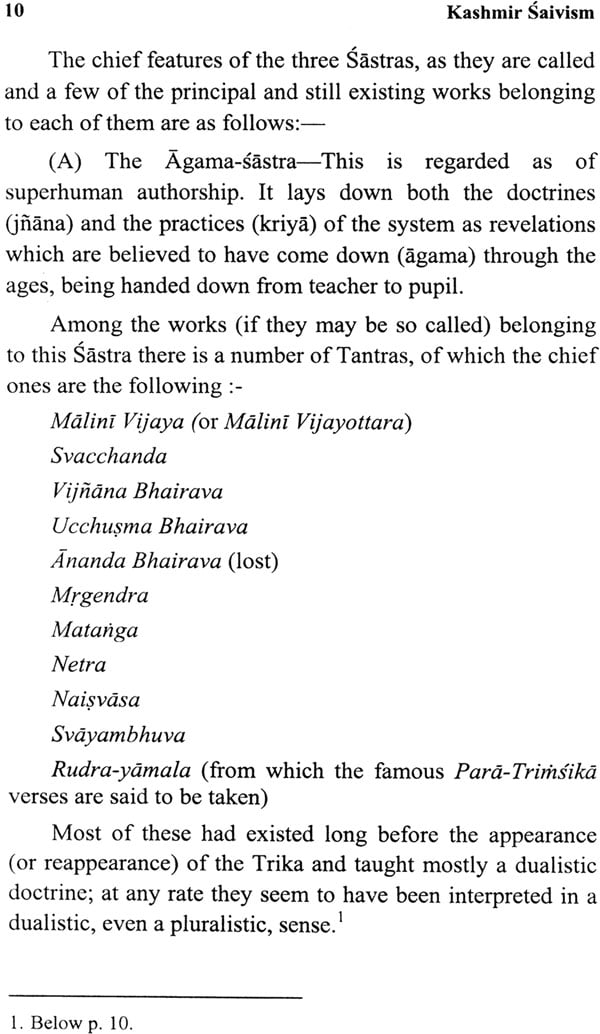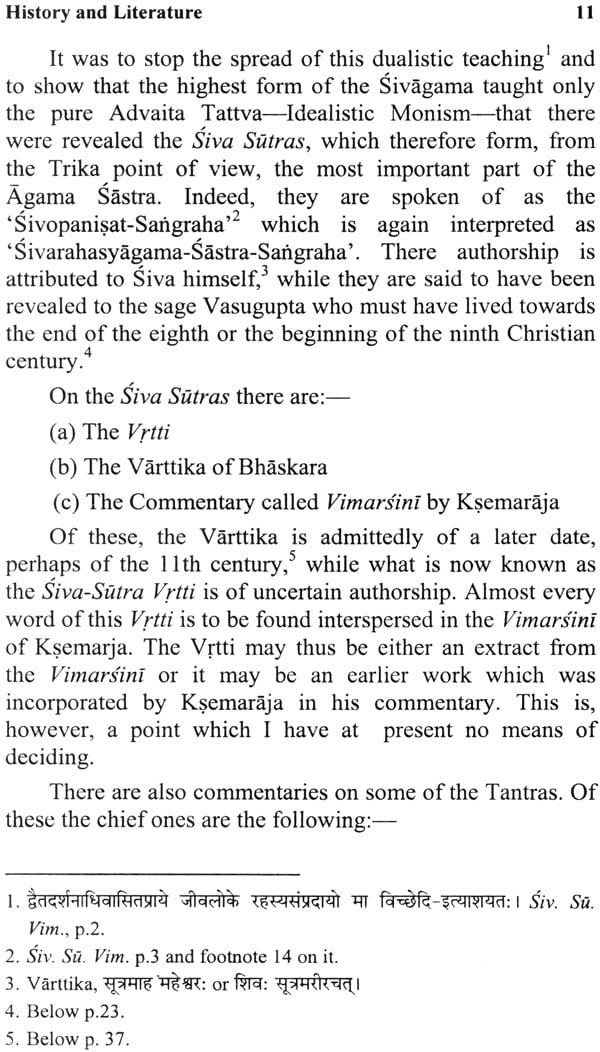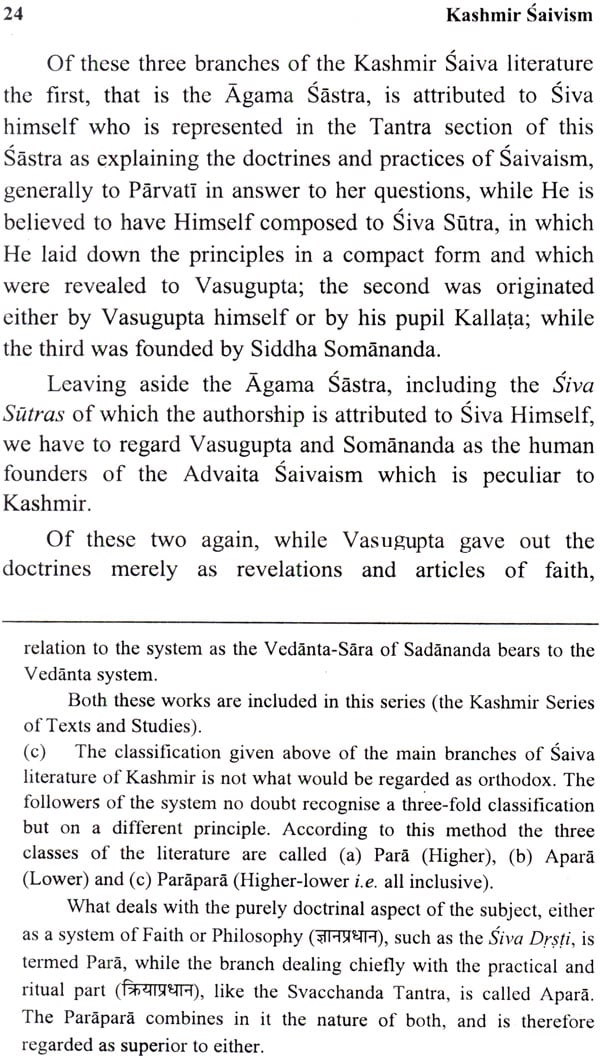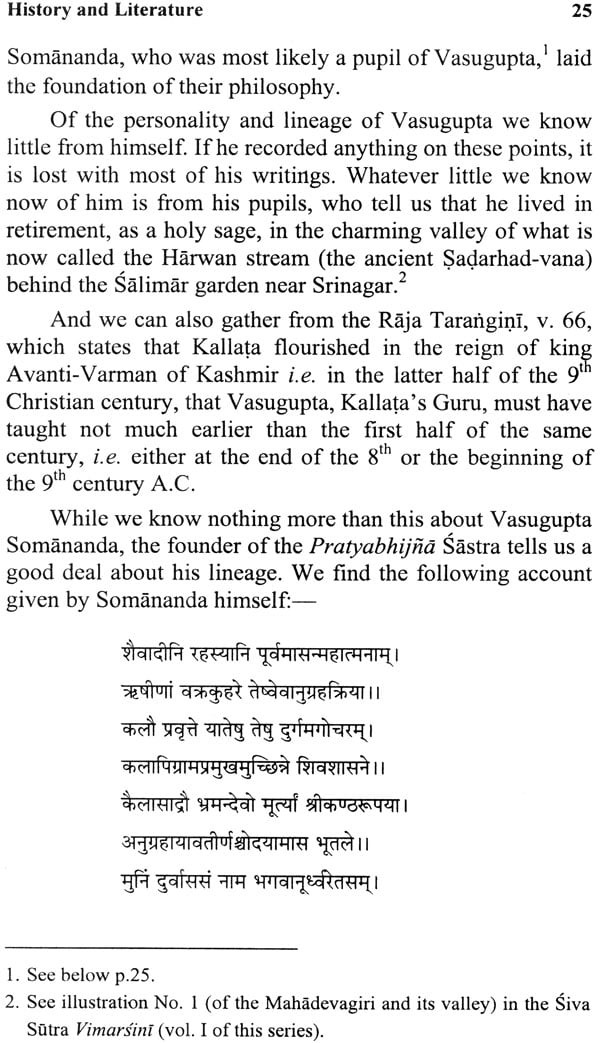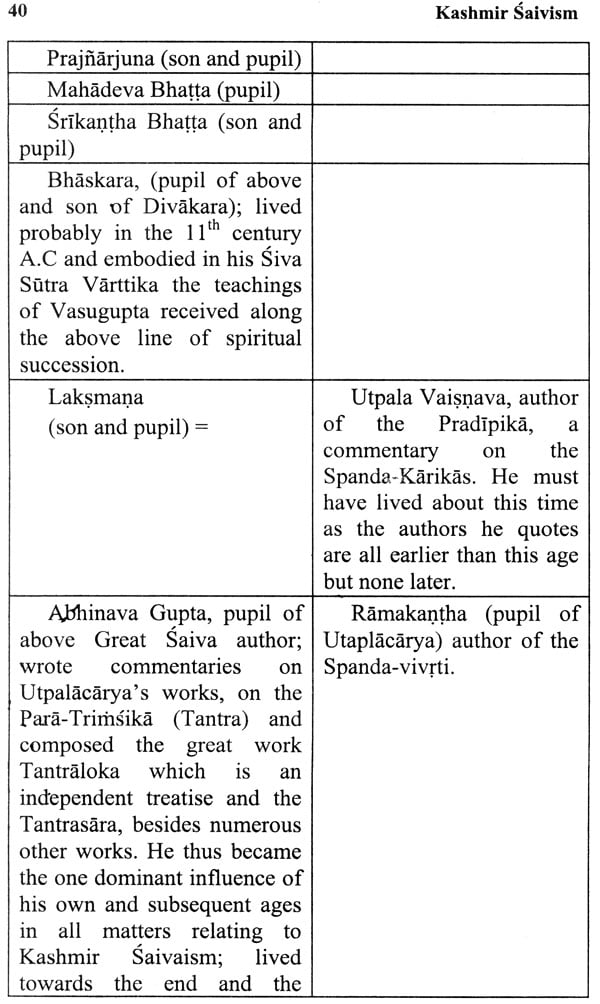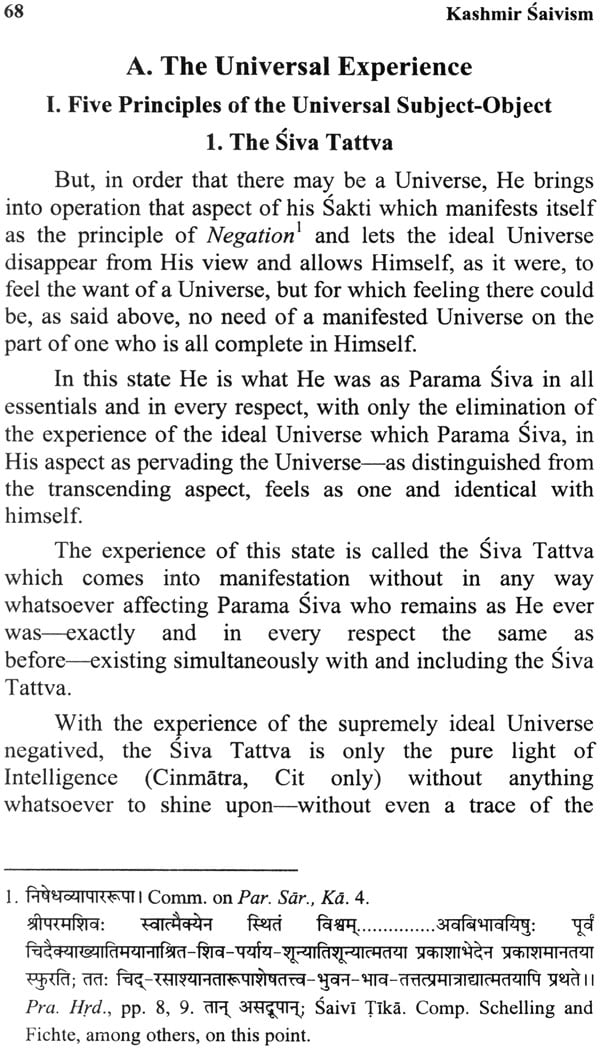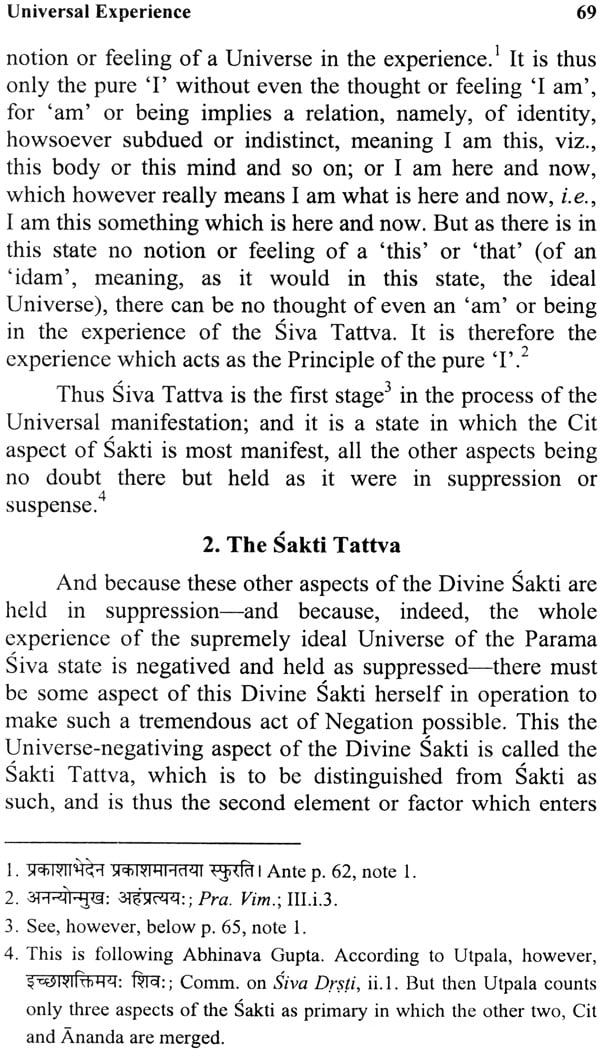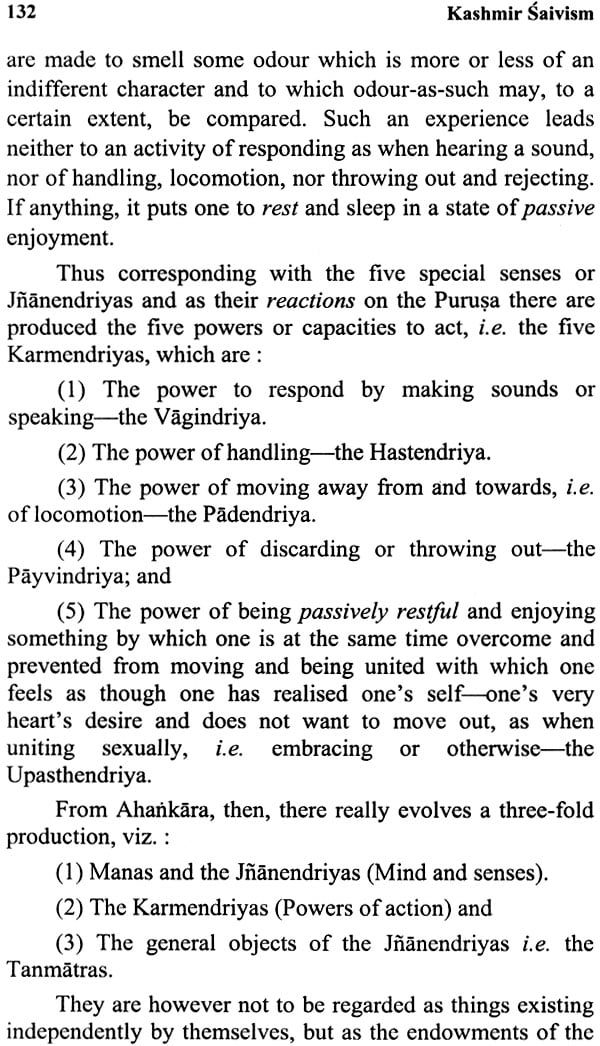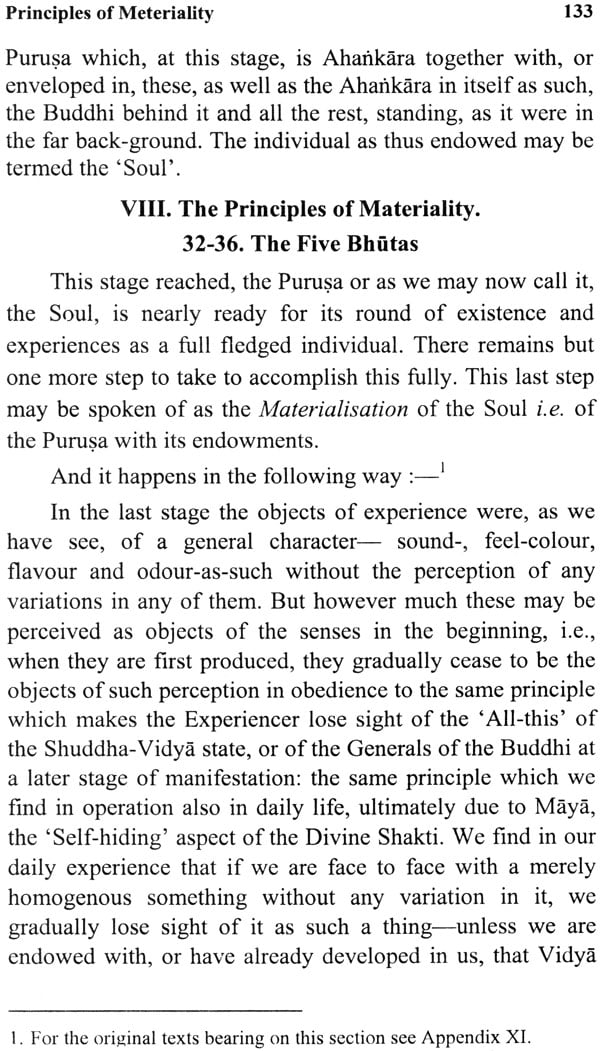
Kashmir Saivaism (Shaivism)
Book Specification
| Item Code: | IDF405 |
| Author: | J. C. Chatterji |
| Publisher: | Parimal Publication Pvt. Ltd. |
| Language: | English |
| Edition: | 2022 |
| ISBN: | 8171100171 |
| Pages: | 170 |
| Cover: | Hardcover |
| Other Details | 8.8" X 5.8" |
| Weight | 330 gm |
Book Description
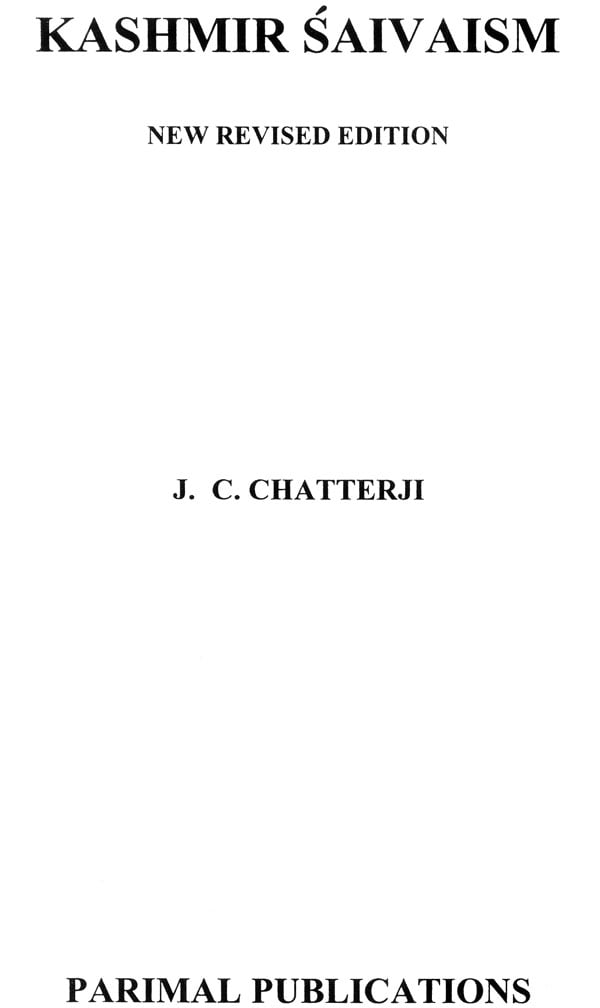
From the Jacket:
J. C. Chatteji's Kashmir Saivaism is an important and unique treatise on Saiva Philosophy that prevailed in Kashmir and still practised in different parts of India. The beginnings of 'Kashmir Saivaism' could be traced from Siva Sutras and its commentary by Ksemaraja. Its teachings and practices are given, in the literature of the system, the distinctive name of Trika-sasana, Trika-Sastra or simply Trika; and are often referred to as the Rahasya-Sampradaya, while Saivaism in general is spoken of as Siva-Sasana or Sivagama. The peculiarity of the Trika consists in the fact that, as a system of philosophy, it is a type of idealistic monism (advaita), and as such differs in of Saiva Philosophy, for instance, from what is described under the name of the Saiva Darsana in the Sarva-Darsana-Sangraha of Madhavacarya.
This book provides an insight of the form of Saivaism developed in Kashmir starting from its History. The entire book in divided into two parts-1) Kashmir Saivaism's History and Literature, 2) The Main Doctrines of the System. The book also works as a basis for comparative study of various forms of Saivaism.
| Part I | ||
| History and Literature | 1-40 | |
| Part II | ||
| The main doctrines of the system | 47-170 | |
| The Atman | 47 | |
| The Process of Manifestation | 59 | |
| The Transcendent Parama Siva | 67 | |
| A. The Universal Experience | ||
| I. Five Principles of the Universal Subject-Object | ||
| 1. | The Siva Tattva | 68 |
| 2. | The Sakti Tattva | 69 |
| 3. | The Sadakhya Tattva | 71 |
| 4. | The Aisvara Tattva | 75 |
| 5. | The Sad-Vidya | 77 |
| B. The Limited Individual Experience | ||
| II. Maya and her progeny | ||
| 6-11. | The six Kancukas | 81 |
| III. Two Principles of the limited individual subject-object | ||
| 12. | The Purusa | 89 |
| 13. | The Prakrti and the Gunas | 93 |
| IV. Principles of mental Operation | ||
| 14-16. | Buddhi, Ahankara and Manas | 98 |
| 17-31. | The five senses, five powers of action and five general objects of sense perception. | 122 |
| 32-36. | The Five Bhutas | 133 |
